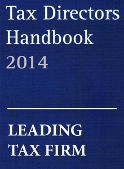
Cryptocurrency in Estonia
The term cryptocurrency was coined in 2012 by the European Central Bank in order to classify digital money in unregulated environments issued and controlled by its developers and used as a payment method among members of a specific virtual community.
Cryptocurrency as a form of virtual currency in Estonia is defined as value represented in digital form that is transferable, presentable or tradeable and that both natural and legal persons consider and accept as an instrument of payment. Cryptocurrency in Estonia are regarded as digital assets for tax purposes, however, are not subject to value added taxes. That being said, cryptocurrencies are not considered to be legal tender of any country or funds by Estonian authorities.
Virtual currency service providers within Estonia are required to apply for and obtain licenses that provide the holder the rights to;
- Provide a service of exchanging a virtual currency against a flat rare
- Provide a virtual currency wallet service
As of November 27, 2017 virtual and cryptocurrencies are subject to Estonia’s Money Laundering and Terrorist Financing Prevention Act and by 20 march 2020 will be subject to new and more robust amendments.
If you are interested to learn more about cryptocurrency and require licensing and setting up in Lithuania or Estonia, please refer to our lawyers in Estonia at info@gencs.eu








